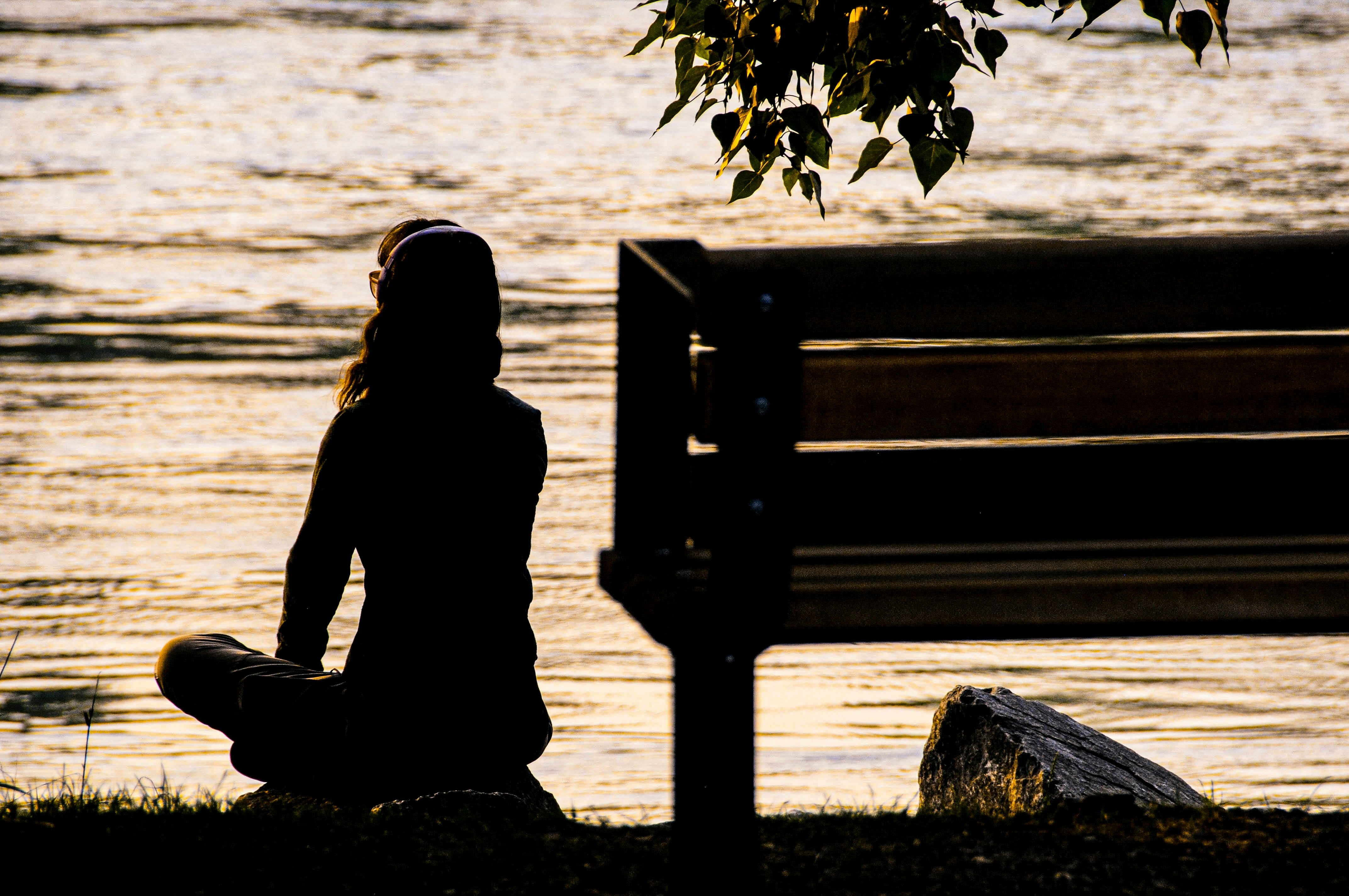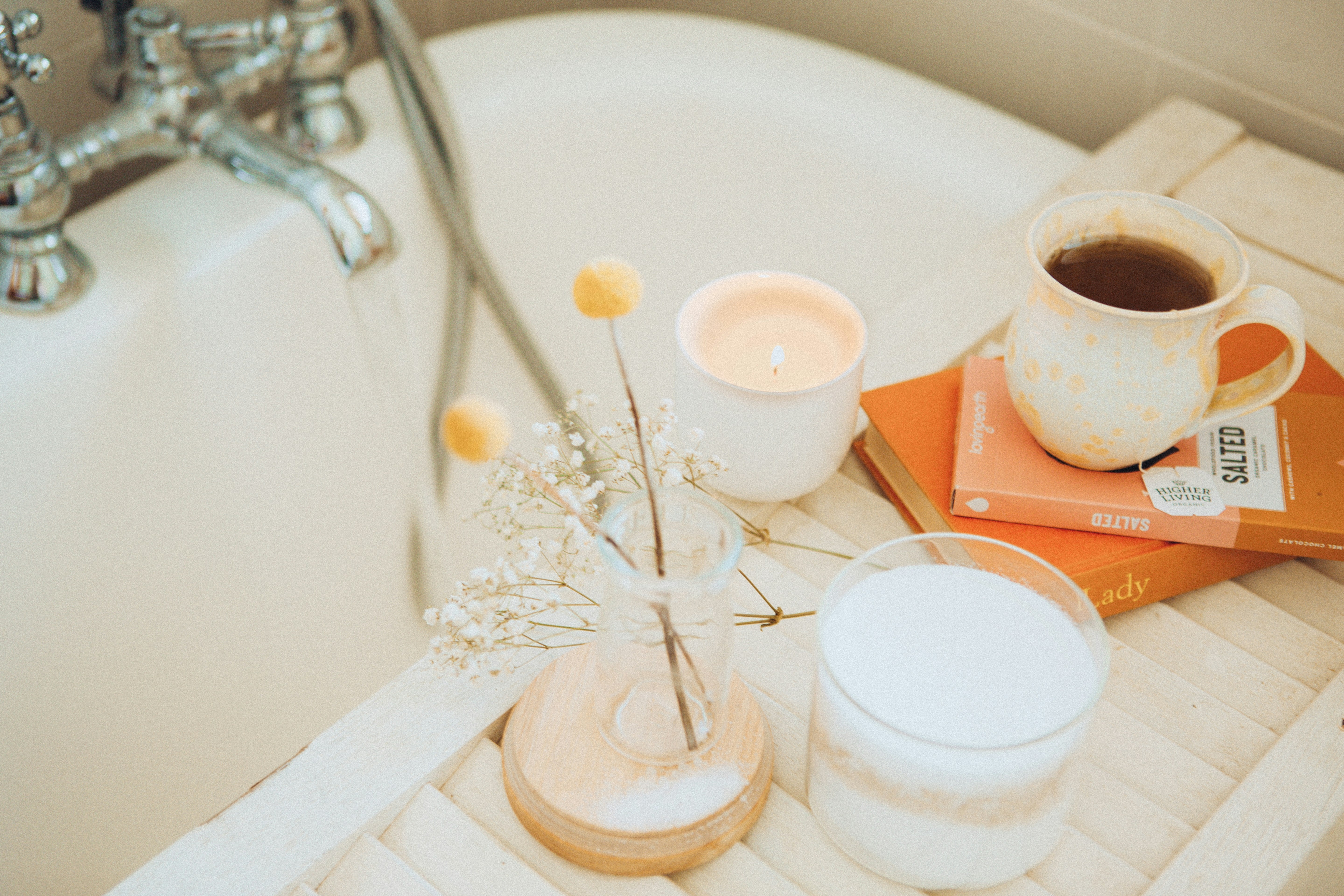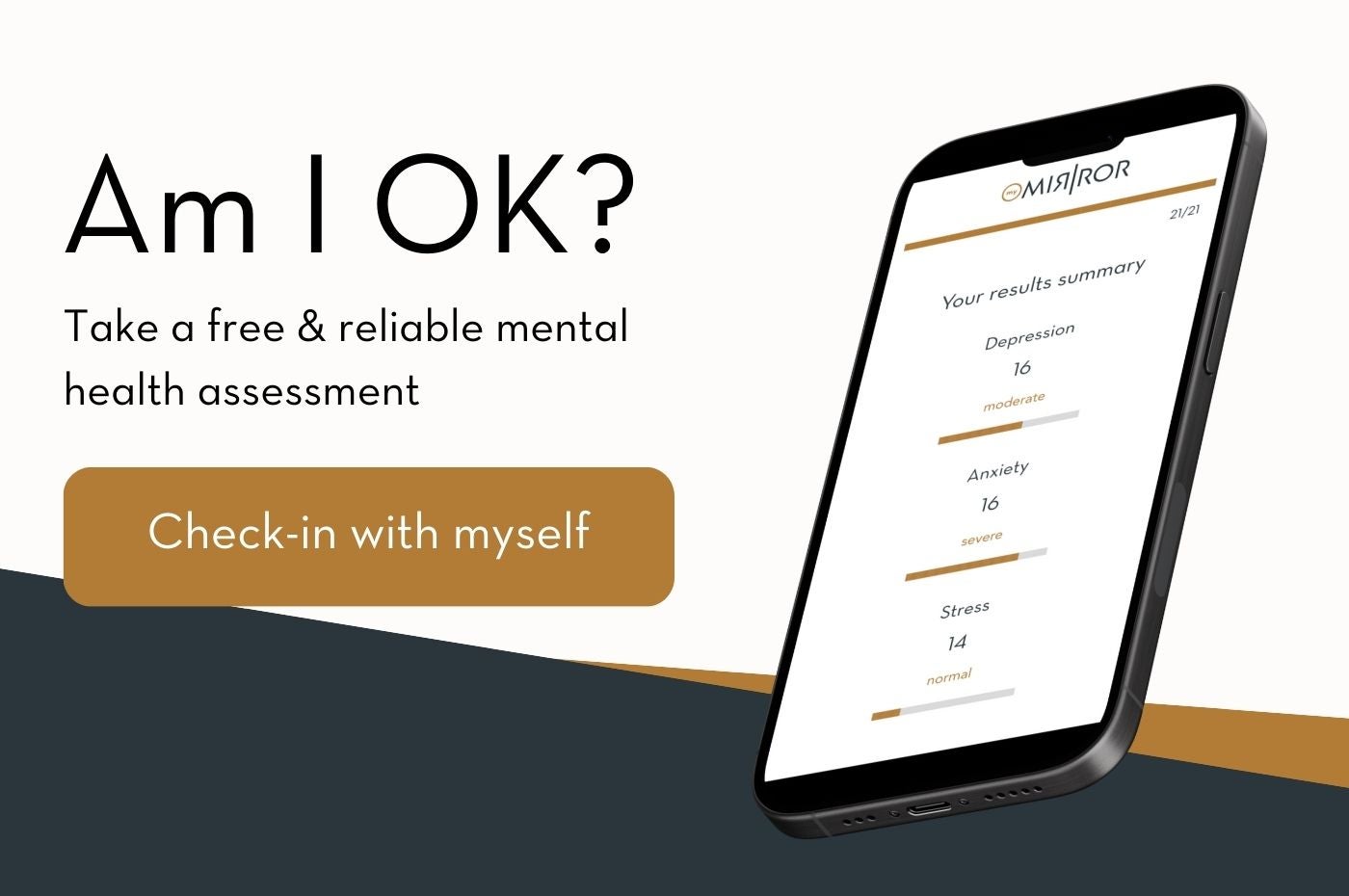Every year we acknowledge RU OK? Day. It’s one day of the year that encourages us to check in with our loved ones and offer them a listening ear and support if they need it. RU OK? Day is a crucial initiative because it gets people talking about mental health and this goes a long way to breaking down the stigma and shame which can be associated with mental health issues and gets people connecting with their loved ones. However, there is another important question that we can often overlook…

“Am I OK?”
There’s an analogy in psychology about self-care. When they demonstrate the safety instructions on an aircraft, they always ask passengers to fit their own oxygen masks before they fit anyone else’s. And why is this? Simply because we cannot look after other people if we are not functioning well ourselves. And this is why “Am I OK?” is an important question to reflect on, before you check in with loved ones and ask, “RU OK?”
Let’s explore why learning to check in with yourself is vital in the quest to maintain your mental health and emotional balance. But also, how do you ask yourself this question, and what do you do with the answers?
The Importance of Self-Reflection
Self-reflection is about pausing and honestly exploring what you are thinking, how you feel (emotionally and physically) and understanding how this impacts your wellbeing. This concept sounds simple enough, but in reality it can feel quite difficult. Many people are very good at pushing down or avoiding their emotions because they feel uncomfortable, or they have thoughts that they would much rather not explore. However, despite ignoring or turning away from our discomfort it doesn’t actually get rid of the situation/feelings.
When we avoid our thoughts and feelings we actually miss out on the opportunity to identify unmet needs, and therefore we cannot meet those needs…and in turn that means the feelings don’t go anywhere, in fact, they can sometimes get worse.
Asking yourself, “Am I ok?” can be confronting for some people, and it certainly isn’t about finding a quick fix or brushing off your feelings. It’s a process of acknowledgement (without judgment) and then using this information to identify what your needs are, and how you will choose to move forward with intention. When you regularly self-reflect it can help you figure out patterns (the way you respond or react to certain scenarios or people) and helps you identify triggers or stressors and can then help you come up with strategies to address things before they escalate. Being self-reflective is a proactive strategy to manage your mental health and can be an empowering first step to taking control of your wellbeing.
How to Ask Yourself “Am I Ok?”

Choose the right time and space for self-reflection
It’s important to be strategic about the time you choose to self-reflect. Try to find a time where you won’t be interrupted, and you can have a quiet moment to consider your thoughts and feelings. Try to set up some time regularly to jot down or reflect on things. The key is to find a space where you can be alone with your thoughts, free from distractions. You can make your self-reflection more formal by scheduling a specific time (i.e. right before bed, or first thing on waking) and you could write down your reflections, or you could keep things more casual and simply mull over your thoughts.
Be Honest
Self-reflection requires you to be honest with yourself. We can be quite good at brushing things off or can be practiced at downplaying things so we don’t worry others, or we just aren’t used to actually thinking about how we feel or what we need/want. So, ensure you are gentle with yourself, and validate that it's normal to have a range of emotions, and give yourself permission to feel any intense emotions like, sadness, anger or anxiety you might be experiencing.
Listen to what your body is telling you
Okay so self-reflection might take practice (and you might need to break some old habits of minimising or pushing away discomfort) so it’s important to check in on your body…it will give you a lot of cues about what you need as your physical health is closely linked to your emotional well-being. So, notice any physical symptoms like; tummy upsets, feeling tired (less total sleep, or reduced quality of sleep), having headaches, or changes in appetite as these things can be a signal from our body that we are experiencing stress or overwhelm. Your body often signals when something isn’t right before your mind does.
Identify triggers and stressors
It’s important to consider what is happening around you, or what was happening before you experienced a period of emotional discomfort or stress. Was something happening at work? Did you have an argument with someone? Did you feel looked over or underappreciated? It’s important to find out what triggers you because understanding the root cause of your discomfort can help you decide on the right tool or strategy to address things.
Understand your needs
Once you have figured out how you are feeling you need to consider what you can do (practically and realistically) to take steps to improve your wellbeing. It could be as simple as asking for help, saying “no” to something, catching up with friends, setting a “to do” list or having an uncomfortable but necessary conversation with someone. Asking yourself “Am I OK?” is about taking action to ensure your needs are being met, which in turn helps reduce emotional discomfort, overwhelm and stress.
Start with a Mental Health Assessment
Our mental health check-in utilises the DASS-21 assessment, a set of three self-report scales designed to gauge emotional states such as depression, anxiety, and stress.
This self-assessment is a quick, free, and confidential tool that helps you gain a clearer understanding of your mental well-being.
The results can be used to refine your search for a psychologist, potentially improving your chances of finding a better match.
Strategies for Improving Your Well-Being

Ok, so you have checked in with yourself, identified your feelings and your needs…but what next? Many people struggle to implement or prioritise strategies that can improve their wellbeing, so here are some simple tips to get you thinking:
Prioritise self-care
Many people think self-care is about treating yourself, but it’s much more than that. Self-care is about taking intentional steps to manage your physical, emotional and mental wellbeing. This could include things like eating well, getting sleep, regular exercise, keeping up social connections, or bringing more things into your day that make you feel fulfilled or joyful. Make self-care a non-negotiable part of your routine.
Set Boundaries
Setting boundaries is a great way you can protect your time and energy. Many people find it hard to say no (they don’t know how to handle difficult conversations or worry what people will think of them when they do put in place a boundary) but it’s an important skill to practice. Saying no might be about reducing additional responsibilities, limiting your exposure to stressful situations (or toxic people), or carving out time for yourself, even if it means that you run the risk of disappointing others. Boundaries can help us prevent burnout as we aren’t being stretched too thin and we have enough energy left for ourselves to commit to activities that bring us positive feelings.
Incorporate mindfulness into your day
Mindfulness is about being present in the moment without judgment. It is a great strategy for reducing stress and strong emotions as you focus on the “here and now” rather than some future (worrying or concerning) situation that might never come to fruition, or some past issue that made you feel distressed or upset. By learning practices like deep breathing, meditation, or body scans you can stay better connected to your emotions and learn how to respond to them in a healthy and adaptive way.
Do things that make you feel happy
When we engage in positive activities it can have a direct influence on our mood. Also, the simple act of doing something intentionally to look after yourself, or to take action can help you feel empowered. So, it could be about learning something new, taking some down time and reading a book or gardening or it could be pursuing something creative. Whatever it is, make sure you do something small and positive for yourself each day.
Seek Support
If the concept of self-reflection feels daunting or you are worried about what might come up (or how you might handle it) then don’t hesitate to reach out for support. You could check in with a loved one and talk to them about what’s happening for you, but if you are struggling to manage your emotions or find yourself feeling overwhelmed you might want to consider talking to a psychologist. Sometimes, an outside perspective can help you see things more clearly and offer solutions you hadn’t considered.
When you ask yourself, “Am I ok?” it is an act of self-compassion and empowerment. It’s about giving yourself, your feelings and needs the attention and care deserve. It’s also about identifying when you need support, and then making strides towards addressing and maintaining your wellbeing. So, is it time to ask yourself….”Am I OK?”


